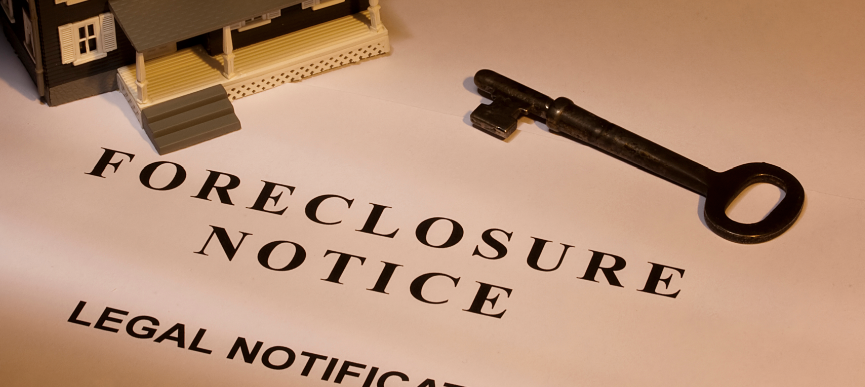
If you’ve gotten a foreclosure notice of default and want to know what the heck is going on, keep reading.
Basically, a foreclosure notice of default is a document that has to be filed by a lender to start the process of foreclosure.
This public notification gives the borrower thirty days to make past-due payments before proceeding with the foreclosure procedure formally. Under federal law, the servicer usually can’t officially begin a foreclosure until you’re more than 120 days past due on payments, subject to a few exceptions. (12 C.F.R. § 1024.41).This 120-day period gives most homeowners sufficient time to submit a loss mitigation application to the servicer.
The foreclosure notice of default must be sent to anyone who has an interest in the property (any other loans, lenders, or even contractors who are owed money for work done to a property will get a copy).
The foreclosure notice of default must also be published in a newspaper and physically posted in a prominent place on the property itself.
Although this can be really embarrassing to someone going through foreclosure, it’s actually a very important protection for consumers. It is best not to ignore this notice and take proactive action to save your home, save your credit or sell the property.
Back before US law required a notice of default, people were sometimes foreclosed on without any warning.
In fact, it’s happened even in the past few years – at least one bank has accidentally foreclosed on the wrong property and kicked people out of their house without due process or warning. It’s even happened around Amherst.
Before the foreclosure crisis, federal and state laws regulating mortgage servicers and foreclosure procedures were relatively limited and tended to favor foreclosing lenders. However, many federal and state laws now give protections to borrowers. Servicers generally must provide borrowers with loss mitigation opportunities, account for each foreclosure step, and carefully comply with foreclosure laws.
The notice of default is a very important step within the foreclosure process that gives people with an interest in the property to step forward and claim their rights – before it’s too late.
If you’ve received a notice of default, don’t wait. Time is definitely of the essence, and you should take action.
In a North Carolina foreclosure, you’ll most likely get the right to:
- preforeclosure notices
- apply for loss mitigation
- receive certain foreclosure notices
- get current on the loan and stop the foreclosure sale
- receive special protections if you’re in the military
- pay off the loan to prevent a sale
- file for bankruptcy
Once you understand the North Carolina foreclosure process and your rights, you can make the most of your situation and, hopefully, work out a way to save your home or at least get through the process with as little anxiety as possible.
Here are a few key steps you should take:
1) Stay calm and don’t panic.
This may sound obvious, but it’s probably the most important. Anyone in foreclosure is dealing with a lot of stress beyond just the property. You may have debt collectors calling for past credit card bills, medical bills or utilities bills as well. These situations don’t happen overnight, and they take a while to solve. You’ll get through it by practicing good coping techniques and taking good care of yourself and your family. Panic leads to bad decisions, so stay cool. It is best to approach these situations with a level head.
2) Educate yourself.
Learn everything you can about the foreclosure process in your state so that you know what’s happening and what’s coming up next. We have other article that you can read here on our website.
We have a FREE report about foreclosure also.
3) Gather your resources.
There’s also many non-profit and government resources available out there. You’ll want good legal and tax advice along the way. Definitely don’t try to do it all yourself. This stuff is super complicated with lots of rules. Check out NCHFA.com.
4) Learn your options.
We’re here to help you avoid foreclosure. We buy houses with cash. We can help you with short sales and even rent-back situations so you (potentially) may be able to keep living in your home. There are many more options than you think. Sometimes it is hard to imagine that there are options available to you. The best thing to do is research everything that is available to you, there maybe a solution you didn’t even think about.
5) Communicate.
The banks involved don’t want your property. They want money, and what you say matters a lot. You can slow down or stop the foreclosure process if you take the appropriate action. It is always good practice to keep open communication with the bank so they can also recommend help that maybe available to you.
Want to know more?